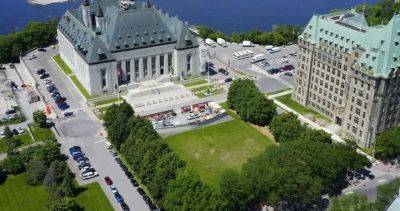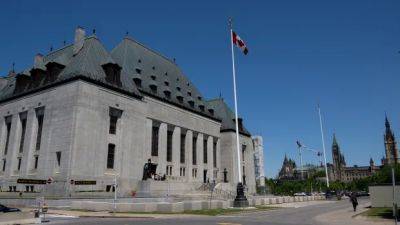Airlines can be required to provide compensation for international disruptions: Supreme Court
The Supreme Court has ruled that airlines can be required to compensate passengers for certain international flight disruptions and Canada's passenger protection regulations do not violate international law.
In a unanimous ruling, all nine justices dismissed an appeal filed by two airline associations and a group of air carriers that serve Canadian and other international airports.
The airlines had argued that Canada's Air Passenger Protection Regulations, introduced in 2019, violated the Montreal Convention, an international treaty that came into force in Canada in 2001.
The Air Passenger Protection Regulations impose obligations on airlines in cases of flight delays, cancellations, boarding denial and lost or damaged luggage.
Those obligations require airlines explain the reasons for delays and cancellations and provide certain free services — such as food, drink and access to washrooms — when a flight is delayed on the runway if the disruption is within a carrier's control and was not required for safety reasons.
The regulations also require that airlines refund baggage fees in cases where luggage is permanently lost or damaged, on top of any damages required under the Montreal Convention.
Article 29 of the convention says «any action for damages» against an airline is «subject to the conditions and such limits of liability as are set out» in the convention.
The airlines argued that Article 29 requires that the regime for compensating passengers is exclusively regulated by the convention, and that the 2019 passenger protection provisions violate that exclusivity.
The question considered by the court was whether the compensation regime under the 2019 regulations that required airlines to compensate passengers with fixed







